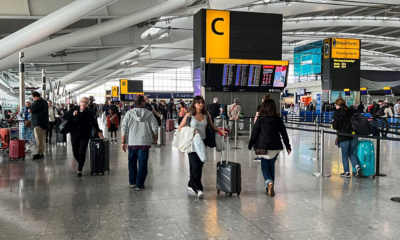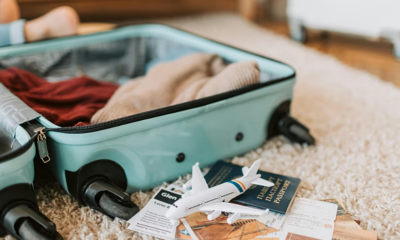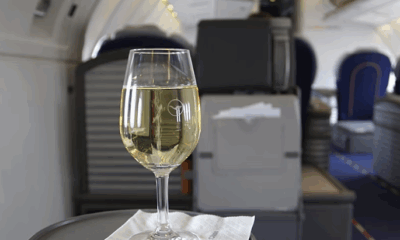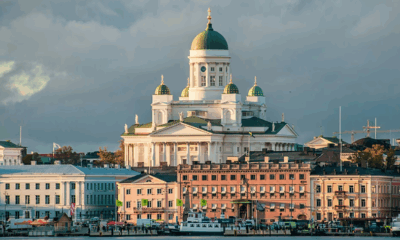Travel
Spain Taps Into Film Tourism Boom as Interest in On-Screen Locations Grows
Spain is emerging as a leading destination for film and television tourism, with the country’s iconic landscapes and cities increasingly attracting travellers eager to visit the settings of their favorite movies and series. Driven by the global reach of streaming platforms like Netflix, this niche tourism sector is rapidly growing—and Spanish companies are stepping up to meet demand.
Popular international productions such as Game of Thrones, La Casa de Papel, Elite, Black Mirror, and Pedro Almodóvar’s films have been shot in Spain, transforming the country into a hotspot for fans seeking immersive experiences at filming locations.
“Before, it was mostly superfans visiting old western sets or Star Wars locations in Seville,” said Diego Santos, a tourism professor at EAE Business School in Madrid. “Now, movie tourism is becoming mainstream and growing very fast.”
The first national study on the trend, Spain of Film: Trends in Cinematographic Tourism, confirms the rising popularity of this travel style. It found that four in ten Spaniards see culture as a major travel motivator, while one in ten have planned trips specifically to filming sites.
Ana Alonso, founder of The Travelling Set, Spain’s first consultancy dedicated to screen tourism, sees huge potential. “Streaming platforms stir global curiosity about landscapes and cultures. That’s where film tourism steps in,” she said.
Madrid emerged as the most frequently mentioned destination for visitors associating their trip with a film or TV production, followed by Almería and Seville. However, Alonso believes Spain still has work to do. “Compared to the UK, Spain is just getting started. It’s like where wine tourism was in its early days.”
To meet growing demand, companies are teaming up with tour operators to craft experiences that go beyond visiting filming sites. Aubry Minotti, founder of Lorens consultancy, explained, “These aren’t just location tours—they’re immersive experiences combining cinema with local history, culture, and gastronomy.”
Experiences range from night screenings and themed dinners to costume viewings, sewing workshops, and film-inspired team-building activities. Alonso adds that screen tourism opens the door to sustainable travel. “It’s not seasonal like beach holidays and can redirect tourists to lesser-known areas.”
Spain’s appeal as a filming destination is long-standing, thanks to its mild climate, diverse landscapes, and cinematic history—from Spaghetti Westerns in Almería to recent global hits. Today, film productions are further incentivized by government tax credits and simplified filming permits. According to the Spain Film Commission, these efforts are generating an economic impact of €1.32 billion.
In a significant milestone, Spain will host Europe’s first film tourism congress next month, marking its emergence as a hub in this growing sector.
As the country grapples with the backlash against mass tourism, screen tourism may offer a more sustainable path forward. “It’s a way to decongest tourist hotspots and bring life to new regions,” said Alonso. “It’s tourism with a story—and a purpose.”
Travel
European Airports Face Holiday Travel Chaos as Staff Stage Strikes
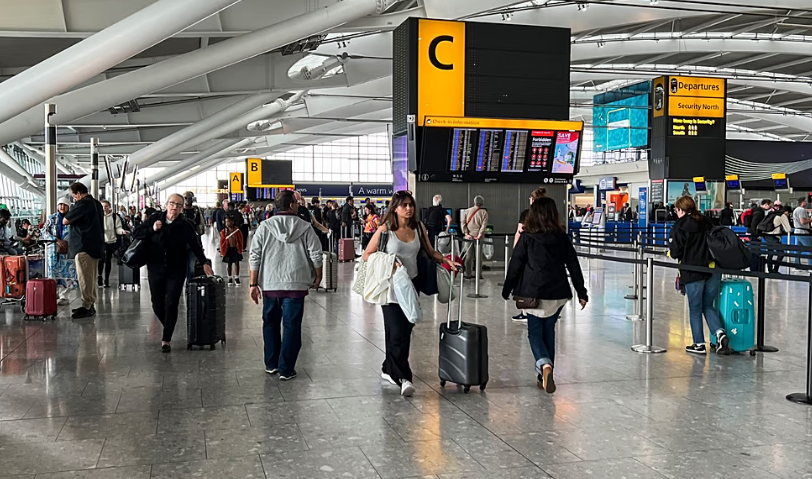
Airport workers across Europe are walking out in protest of the “Grinch-style behaviour” of low-paying employers, threatening to disrupt travel during the busy Christmas season. The strikes come as staff push for better pay, improved working conditions, and job security, targeting a period when millions travel for holidays.
In Italy, coordinated walkouts are planned on 17 December, involving ground handling staff, airline crew, and air traffic controllers. The four-hour strike, from 1 pm to 5 pm, will include ENAV air traffic controllers at Rome airport, Assohandlers staff covering major airports, employees of ITA Airways, and ground staff for Vueling, Air France, and KLM. Officials warn that disruption may extend throughout the day, causing flight delays and longer check-in and baggage queues at airports in Milan, Rome, Venice, Naples, and Catania.
In the UK, London airports are preparing for a series of strikes around Christmas. From 19 to 22 and 26 to 29 December, easyJet ground staff at Luton Airport will walk out, affecting check-in and baggage handling. London Heathrow Airport is also facing potential disruptions as Scandinavian Airlines Services (SAS) cabin crew plan to strike from 22 to 24 and on 26 December. Flights to major Scandinavian hubs, including Copenhagen, Stockholm, and Oslo, may experience delays or cancellations.
Workers cite low pay as a key reason for the action, with union Unite noting that some staff have been forced to rely on food banks while working at expensive Scandinavian destinations. “This is real Grinch-style behaviour from SAS – it is taking advantage of the goodwill of its staff and will now be responsible for cancelled Christmas flights,” said Callum Rochford, Unite regional officer.
Spain is also seeing ongoing travel disruptions due to strikes at Ryanair’s ground handling partner, Azul Handling. Since the summer, staff have staged weekly walkouts over working conditions, bonuses, and job security. Strikes will continue until 31 December on Wednesdays, Fridays, Saturdays, and Sundays during early morning, midday, and late-night shifts. Passengers flying from Alicante, Barcelona-El Prat, Girona, Ibiza, Lanzarote, Madrid-Barajas, Malaga, Palma de Mallorca, Santiago de Compostela, Seville, Tenerife South, and Valencia can expect longer queues and delays with check-in and luggage collection.
Travel experts advise passengers to check the status of flights before heading to airports, as some walkouts are announced only days or hours in advance. Those affected by cancellations or delays may be entitled to alternative tickets or compensation.
With strikes coinciding with one of the busiest travel periods of the year, passengers are urged to allow extra time for check-in, baggage handling, and security procedures to avoid last-minute chaos.
Travel
UK Watchdog Slams Budget Airlines Over Cabin Bag Pricing
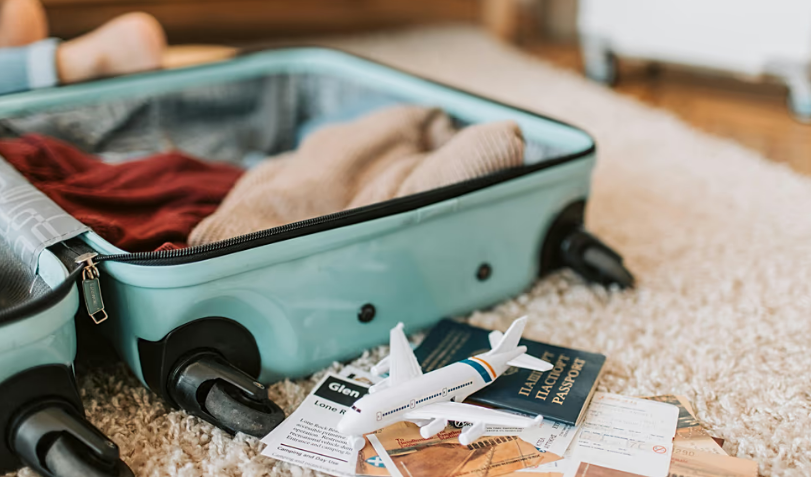
UK consumer group Which? has criticised major European budget airlines for rarely offering carry-on bag fares as low as advertised. The watchdog’s survey shows that the lowest prices promoted by Ryanair, EasyJet, and Wizz Air are almost never available to passengers.
The survey examined nearly 1,500 bag prices across eight popular routes, spanning Ryanair, EasyJet, and Wizz Air. It found that advertised cabin bag fares starting from £5.99 (€6.80) were available less than one per cent of the time. Data was collected across four dates in August, November, December, and February to account for peak and off-peak travel.
Which? highlighted that passengers often only discover cabin bag charges at the final stage of booking, a practice the watchdog described as frustrating and potentially misleading. In some cases, the fees for carry-on luggage exceeded the cost of the flight itself, particularly on short European routes, which are the main draw for budget travellers.
The watchdog contrasted these practices with those of larger airlines such as British Airways, KLM, and Qatar Airways, which typically include a free cabin bag while charging for checked luggage. Budget carriers’ additional gate fines and opaque pricing have drawn scrutiny in recent years. In November 2024, Spain’s Consumer Rights Ministry fined five budget airlines €179 million over “abusive practices” regarding luggage, though the EU Commission has challenged Spain’s authority to impose the penalties.
Which? has shared its findings on EasyJet with the UK Advertising Standards Authority (ASA), which is now investigating. Rory Boland, editor at Which?, said: “Our research shows that the tens of millions of passengers who need to take a cabin bag will pay much more than the cheapest price advertised. Rather than a few pounds, prices for bags can often exceed the flight itself. The tactics used by these airlines deserve to be called out.”
EasyJet’s lowest advertised cabin bag fare of £5.99 was not found on any of the 520 flights surveyed. The cheapest fare identified was £23.49 (€26.79), with the average at £30 (€34.20). EasyJet said its pricing is transparent and allows customers to pay only for what they need.
Ryanair’s lowest cabin bag fare of £12 (€13.70) was available on just two out of 634 flights, or 0.3 per cent of the time. The airline dismissed the survey as unrepresentative, noting it operates more than 100,000 flights each month and claimed its policies are optional and transparent.
Wizz Air’s lowest cabin bag fare of €10 was available on only two of 338 flights, or 0.6 per cent of the time. A spokesperson said customers receive a free under-seat bag with every ticket and can choose larger luggage if required, insisting their pricing is compliant and clear across multiple channels.
The Which? survey adds to growing concerns over budget airlines’ baggage fees, with regulators and consumer groups calling for more transparency and fairness in cabin bag pricing.
Travel
Kazakhstan and Uzbekistan Strengthen Ties in Hospitality Sector at HORECA Expo 2025

The growing partnership between Kazakhstan and Uzbekistan’s hospitality sectors took center stage at the HORECA Expo Uzbekistan 2025 in Tashkent, where industry leaders discussed digital innovation, service culture, and cross-border cooperation shaping Central Asia’s fast-evolving tourism landscape.
The three-day event brought together restaurateurs, policymakers, and service professionals from across the region to exchange ideas on how technology and collaboration are redefining the modern hospitality industry. Representatives from both countries emphasized that digitalisation and shared training are transforming how hotels and restaurants operate, with regional cooperation now seen as key to sustained growth.
Kazakhstan focuses on digital transformation
Kazakhstan’s delegation, led by the Association of Restaurants of Kazakhstan, highlighted the country’s rapid progress in integrating digital tools into everyday operations. Established in 2016, the association now represents around 16,000 restaurants nationwide.
“We started by organizing culinary contests, and soon realized restaurateurs needed a dedicated platform to share experience,” said Irina Lebedeva, Financial Director of the Association. “Now, we’re focused on digitalisation — automating reservations, accounting, and even customer feedback through new technologies.”
Lebedeva noted that modern restaurants are about creating an emotional experience, not just serving food. “Guests come for impressions — the light, music, atmosphere,” she said. “Technology helps us maintain that consistency while giving managers more time to focus on quality rather than paperwork.”
Uzbekistan expands support for global reach
Uzbek officials outlined policies designed to help local entrepreneurs take their culinary ventures abroad. According to Shukhrat Isakulov, head of the Department for Tourism Development under the Ministry of Ecology, the government offers subsidies covering equipment, logistics, and even ingredient transport for restaurateurs opening businesses overseas.
“The programme runs until 2027 and supports those promoting Uzbek cuisine internationally,” Isakulov said. “We want Uzbek hospitality to be visible on the global stage.”
At home, Uzbekistan continues to invest in professional training and digital infrastructure to improve standards across hotels, restaurants, and transport services. Officials say the goal is to raise service quality across the entire tourism value chain.
Shared goals for a regional future
Delegates from both countries agreed that shared traditions and close geography make collaboration natural. With similar languages and a common service ethos rooted in warmth and personal connection, cooperation between Uzbek and Kazakh hospitality sectors is growing rapidly.
“We don’t have closed clubs or membership fees,” Lebedeva added. “If someone wants to learn and develop, the doors are open. Collaboration is what makes the industry stronger.”
Participants concluded that the future of Central Asia’s hospitality industry lies in mutual learning, digital innovation, and shared professional standards — ensuring growth that celebrates both unity and diversity across the region.
-

 Entertainment1 year ago
Entertainment1 year agoMeta Acquires Tilda Swinton VR Doc ‘Impulse: Playing With Reality’
-

 Business2 years ago
Business2 years agoSaudi Arabia’s Model for Sustainable Aviation Practices
-

 Business2 years ago
Business2 years agoRecent Developments in Small Business Taxes
-

 Home Improvement1 year ago
Home Improvement1 year agoEffective Drain Cleaning: A Key to a Healthy Plumbing System
-

 Politics2 years ago
Politics2 years agoWho was Ebrahim Raisi and his status in Iranian Politics?
-

 Business1 year ago
Business1 year agoCarrectly: Revolutionizing Car Care in Chicago
-

 Sports1 year ago
Sports1 year agoKeely Hodgkinson Wins Britain’s First Athletics Gold at Paris Olympics in 800m
-

 Business2 years ago
Business2 years agoSaudi Arabia: Foreign Direct Investment Rises by 5.6% in Q1

